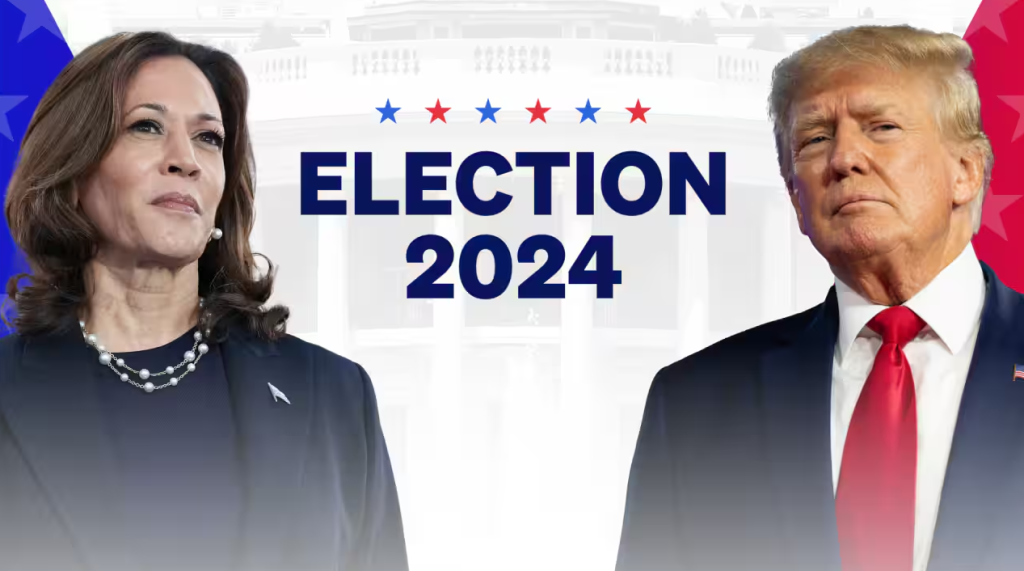Manufacturing consent was a phrase originally coined in 1922, by the American journalist Walter Lippman, to refer to the management of public opinion. We can look at this through the presentation of the propaganda model, created by Herman and Chomsky (1988), in which the mass media select material in relation to the values of those in power. They argue the mass communication media of the U.S. “are effective and powerfull ideological institutions that carry out a system-supportive propaganda function, and without overt coercion”.
Furthermore, we can also look at manufacturing consent through Edward Bernays, as being the art of manipulating people without them being aware of it.
The argument is that the mainstream U.S and western media is driven by corporate business interests, and relies on advertising for profit. The idea is to persuade the public about ideas that suit their politial-economic elites. We can look at the recent U.S election as an example.
ㅤ

The recent U.S election brought a lot of controversy around the media, with “Project 25” being said to have been led by Trump, which may not truly be the case.
By looking at the propaganda model filters of ownership, advertising, sourcing, flak and anti-communism, we can see that political candidates have a monopoly over the media. Trump majoritively dominates Fox News, and thus a lot of people will flock to them for election information. The same goes for sites like CNN.
ㅤ

We can see through TikTok that both political candidates aimed to advertise their plans to the younger generation, in hopes of boosting their votes, and possibly getting through to a more “naive” and “less educated” audience, as the younger generation won’t be knowledged politically. As we all depend on the media, sourcing is also a huge part – we needed fact checkers, and so there were at the debates, to ensure all the proper information was given.
ㅤ

A little more off-topic and less on the U.S, flak was a massive controversy in the UK with the royal family – they would highlight the treatment of Princess Diana, and the racism and sexism the press displayed. Prince Harry went on to sue the press.
However, going off topic, we can highlight the main critique – this model is U.S centered. It can still apply to other countries around the world, like the UK for example. That, and not everyone HAS to believe what the news broadcasts.
ㅤ
The last part is anti-communism, which is a larger debate in itself. The U.S keeps accusing Democrats of communism, with Trump calling the 2024 debate a choice between “communism and freedom“. Communism has always been a part of the larger picture, and one thing a lot of people won’t fully understand unless they’ve had their history lessons.
Overall, it’s clear that within the modern day, manufacturing consent is still a large problem. The press, in general, are invasive still. While Chomsky and Herman’s model is accurate for the U.S, it doesn’t account for the larger picture, which is the rest of the world. We, as the general public, need to be mindful that the information we read online is accurate and represents the truth, and that we aren’t falling into the trap of being manipulated by the elite. The 2024 election is only the start of what could come – it’s happened for many, many years, who’s to say it won’t keep happening?
ㅤ
References
A piece of media. (2024) The story of the 2024 U.S Election. 8th November, 2024. Available at: https://www.youtube.com/watch?v=N35EWuzDBUE
Cole, Hollie. (2024) Prince Harry ‘one of two claimaints suing sun publisher’, court told. Available at: https://www.bbc.co.uk/news/articles/cvglrv7q945o [Accessed: 17/11/2024]
Could feral ’25 year olds’ win the U.S election for Kamala Harris? Available at: https://www.ft.com/__origami/service/image/v2/images/raw/ftcms%3A62a4b87e-e1ac-4d0d-aa85-50145b52a776?source=next-article&fit=scale-down&quality=highest&width=1440&dpr=1 & https://www.ft.com/content/9085e47a-b4e4-47b1-ad87-29d3137cc245
Manufacture of consent. (2024) Available at: https://www.oxfordreference.com/display/10.1093/oi/authority.20110803100132197 [Accessed: 17/11/2024]
Taylor, Alex. (2021) Harry and Meghan: What’s the media’s ‘invisible contract’ with British royalty? Available at: https://www.bbc.co.uk/news/entertainment-arts-56326807
Turan, Iclal. (2024) Trump calls 2024 election ‘a choice between communism and freedom’. Available at: https://www.aa.com.tr/en/americas/trump-calls-2024-presidential-election-a-choice-between-communism-and-freedom-/3316641
Your essential guide to the 2024 U.S presidential election on SBS and SBS on demand. Available at: https://images.sbs.com.au/dims4/default/19711e7/2147483647/strip/true/crop/1920×1080+0+0/resize/1280×720!/quality/90/?url=http%3A%2F%2Fsbs-au-brightspot.s3.amazonaws.com%2F79%2Fcd%2F3555bf9b46dbb5e6b058f43ad651%2Fus-election-coverage-promo.png & https://www.sbs.com.au/whats-on/article/your-essential-guide-to-the-2024-us-election/u8cprmht2
S. Herman, Chomsky, Noah. (1988) Manufacturing Consent: The political economy. First edition. Pantheon Books.


I came across an insightful analysis of the phenomenon of manufactured consent in this article. Taking the 2024 US election as an example, it highlights the important role that media plays in shaping public opinion. The article is well-structured and presents strong arguments, making it a valuable resource for understanding how media influences political elections. Additionally, it raises awareness about the dangers of media manipulation and encourages readers to think critically. However, the article falls short in providing specific and in-depth solutions for how to counter media manipulation and maintain independent thought. Nevertheless, it is a thought-provoking piece that is worth reading for anyone interested in the media’s political influence.